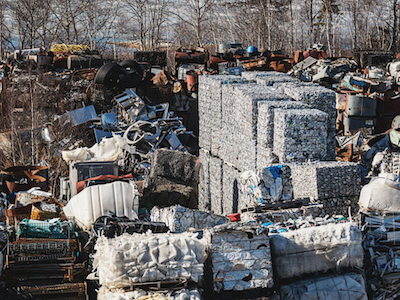Market

July 2, 2017
Article Prompts Response on Chinese Scrap
Written by John Packard
On Thursday, Steel Market Update (SMU) published an article about the scrap markets entitled “Ferrous Scrap: Sideways in July?” In the article, John Harris, the former scrap buyer for ArcelorMittal and one of our speakers at this year’s SMU Steel Summit Conference, gave his opinions on the future issues associated with the industry. On Friday, we received a response from Philip Hoffman, Hoffman Iron & Steel, who is currently living in Vietnam and well aware of the issues the Chinese are having with scrap and scrap exports. Here are the comments he asked be published in response to those made by Mr. Harris:
I am dealing with and have visited mills here (Vietnam) that are importing Chinese scrap. They were counting on shipments that they did not receive due to contract cancellations as a result of increasing scrap prices in China over the last two weeks. One mill that I visited last week that melts 50,000 tpm had an inventory of 10,000 due to shipments that didn’t arrive from China. Another mill I visited yesterday had very little inventory, as well. As a result, there have been production cuts and delayed shipments on billet orders, which is now putting upward pressure on billet prices. So, mills here keep using Chinese scrap as a negotiating tool, but the reality is that actual shipments from China are not that significant in terms of total tonnage.
Mid-term, internally, Chinese BOFs and EAFs are now using more scrap and have the capacity to use all of the internally generated scrap. As well, the Chinese government is going to keep a close eye on the 40 percent export tax payments and enforcement, as well as scrap shipments out. Right now, there are smugglers that get around the tax, but as I send this email to you the Chinese Government is formulating a new enforcement mechanism. Longer term, China may allow some scrap export, but if it gets too large and threatens the more environmentally friendly EAF and BOF increased scrap usage, the government will curtail or stop it entirely.
Further India, Pakistan and Bangladesh are increasing their scrap consumption.
Bottom line: The comment that Chinese scrap export to Asia and Turkey will lower the global scrap price to $100 should not be taken seriously because it is a much more complicated issue then simple market driven economics.
If 232 gets approved, depending on the penalties, scrap prices will likely increase in the U.S. and that will likely raise global scrap prices. To me, this will make it even more imperative that China secures its home well of scrap supply to assist its steelmakers rather than export it to assist the rest of the world’s steelmaking nations.
The post Article Prompts Response on Chinese Scrap appeared first on Steel Market Update.






